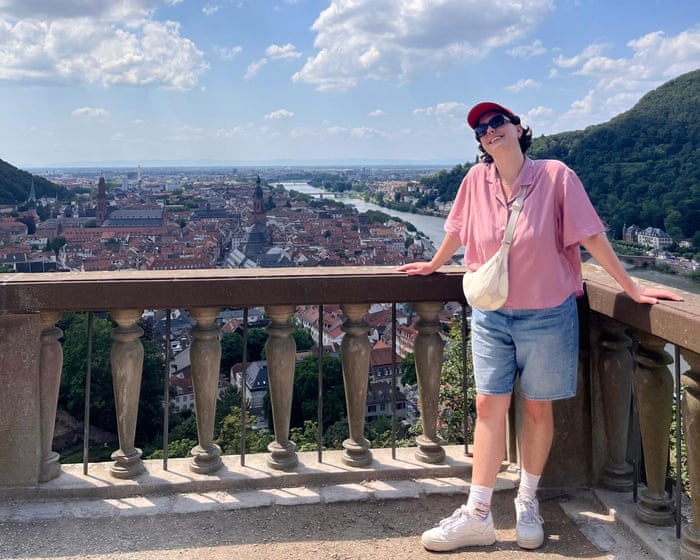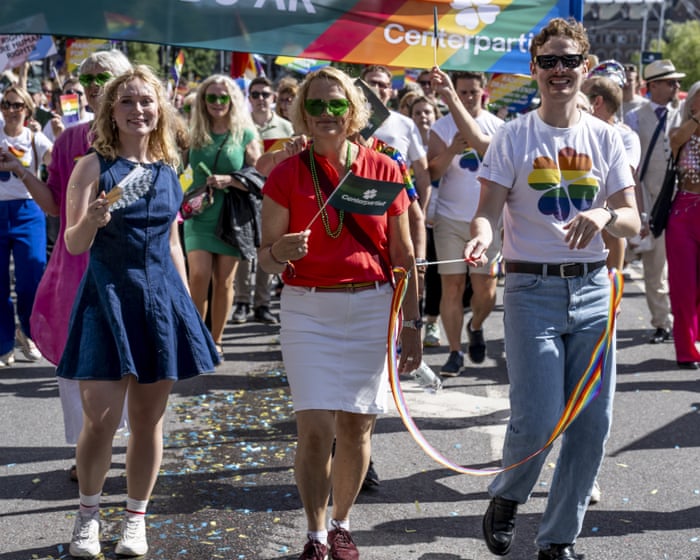About a year ago, while packing for a move to a new flat, I got rid of the only dress I owned. Until then, I hadn’t realized I was down to just one. I knew I rarely reached for dresses or skirts anymore, whether shopping or in my own wardrobe. I had already cleared out the neglected tights from my sock drawer. But the shift to wearing only trousers happened gradually. A few months ago, I surprised myself when I automatically replied to someone’s question about my outfit with a calm and confident, “I’m not really a dress person.”
And it’s true—I’ve realized I’m just not. That last dress, a simple black midi representing the little black dress that 2000s magazines insisted every woman should own, had only been worn a few times. So, into the charity shop pile it went.
I was never the type of child who threw tantrums when made to wear a dress, but I wasn’t naturally “girly” either. At a mixed-gender nursery, I was cast as Joseph in my first nativity play. When I started school and had to wear a skirt as part of the uniform, my teacher would say “lady Lucy” to remind me to sit with my legs together. In one photo from a childhood fancy dress party, I’m standing proudly behind the other girls, all dressed as princesses, with my arms outstretched, inexplicably dressed as a crow.
Coming out as gay in my late teens freed up my fashion choices—I no longer felt pressured to look like a stereotypical straight woman—but it also brought its own challenges. Comments like, “Just because you’re a lesbian doesn’t mean you have to look like a man,” made me hesitant to present in a more androgynous way for a while. I knew I didn’t fit neatly into “butch” or “femme” categories.
Gradually, as I experimented and found clothes that felt like me, I realized that not being a “dress person” works for me. It can take more effort to find the right outfit, especially for formal events. For example, I agonized over what to wear to a very fancy wedding last year where the dress code called for floor-length gowns and tuxedos—I ended up choosing a satin suit. But I’ve found that as long as you make an effort to look smart, people don’t seem to mind if you don’t follow the dress code exactly.
I don’t want to pretend that looking more visibly queer is easy in today’s political climate—I’ve faced more homophobic harassment in recent years. And I truly hope the debates about who should use which bathrooms don’t discourage people from dressing in gender non-conforming ways. Because when I’m wearing a killer suit, I feel like I can do anything, and no one should be intimidated out of that feeling.
By giving up dresses for good, I’ve learned to appreciate my childhood self, who confidently chose that crow costume. Not because it was a good look (it really wasn’t), but because that little girl didn’t care about being different or looking the way a girl is “supposed” to. I think I’ve been finding my way back to her ever since.
Frequently Asked Questions
Of course Here is a list of helpful and natural FAQs about the journey of letting go and selfdiscovery
FAQs Letting Go Discovering Your True Self
Beginner Questions
1 What does letting go of my last dress mean
Its a metaphor for releasing a final symbolic attachment to an old identity role or version of yourself that no longer fits who you are now
2 How do I know what I need to let go of
Think about what feels heavy inauthentic or like youre just playing a part It could be a job a relationship a belief or even a possession that represents your old self
3 Is letting go the same as giving up
No not at all Giving up is often driven by fear or defeat Letting go is a conscious courageous choice to make space for something new and more aligned with your true self
4 Will I feel better immediately after I let go
Not always Its common to feel a mix of relief sadness fear and excitement all at once Its a process and its okay to grieve what youre leaving behind
5 Whats the first step to start this process
Start with selfreflection Ask yourself simple questions like What makes me feel truly happy and at peace or What part of my life feels like a costume Im wearing
Intermediate Questions
6 What are the biggest benefits of discovering my true self
Youll experience greater inner peace more authentic relationships increased confidence and a stronger sense of purpose because your actions will align with your core values
7 What if Im scared of who I might find
That fear is normal Remember your true self isnt a scary stranger its the most authentic unburdened version of you The journey is about uncovering the person youve always been underneath the expectations
8 How long does this process of selfdiscovery usually take
Its a lifelong journey not a destination There are moments of major clarity but its an ongoing process of learning and growing
9 Can a therapist or coach help with this
Absolutely A professional can provide invaluable guidance tools and a safe space to explore your



